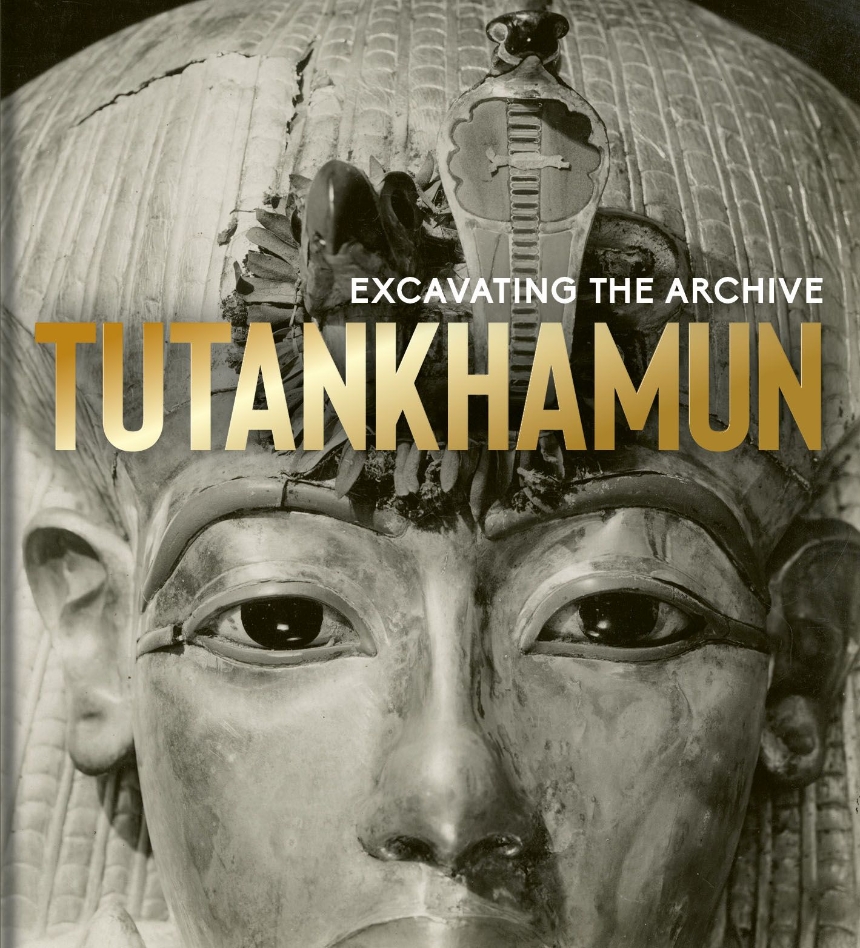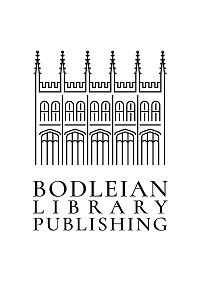Tutankhamun offers an intimate insight into the records of one of the world’s most famous archaeological discoveries.
In 1922, as Egypt became an independent nation, the tomb of the young king Tutankhamun was discovered. It was the first known intact royal burial from ancient Egypt, and the excavation of the tomb by Howard Carter and his team, funded by the 5th Earl of Carnarvon, generated enormous media interest. The excavation was famously photographed by Harry Burton, and these photographs, along with letters, plans, drawings, and diaries, are part of an archive created by the excavators and presented to the Griffith Institute, University of Oxford, after Carter’s death.
These historic images and records present a vivid first-hand account of the discovery, including the spectacular variety of the king’s burial goods and the remarkable work that went into documenting and conserving them. The archive enables a nuanced and inclusive view of the complexities of both the ancient burial and the excavation, including often overlooked Egyptian members of the archaeological team. Tutankhamun includes a selection of fifty key items, chosen by the staff of the Griffith Institute, that provide an accessible and authoritative overview of the archive, drawing on new research on the collection and giving unprecedented insight into the records of one of the world’s most famous archaeological discoveries.
In 1922, as Egypt became an independent nation, the tomb of the young king Tutankhamun was discovered. It was the first known intact royal burial from ancient Egypt, and the excavation of the tomb by Howard Carter and his team, funded by the 5th Earl of Carnarvon, generated enormous media interest. The excavation was famously photographed by Harry Burton, and these photographs, along with letters, plans, drawings, and diaries, are part of an archive created by the excavators and presented to the Griffith Institute, University of Oxford, after Carter’s death.
These historic images and records present a vivid first-hand account of the discovery, including the spectacular variety of the king’s burial goods and the remarkable work that went into documenting and conserving them. The archive enables a nuanced and inclusive view of the complexities of both the ancient burial and the excavation, including often overlooked Egyptian members of the archaeological team. Tutankhamun includes a selection of fifty key items, chosen by the staff of the Griffith Institute, that provide an accessible and authoritative overview of the archive, drawing on new research on the collection and giving unprecedented insight into the records of one of the world’s most famous archaeological discoveries.
Table of Contents
Contents
Preface
Introduction: The ‘wonderful things’ by R.B. Parkinson
Fifty records from the archive
1. A teenager in Egypt
2. The young artist
3. ‘Lord C.’
4. A map of five years’ work
5. ‘Found’
6. The first step
7. ‘It is wonderful’
8. A view into the tomb
9. ‘The greatest find ever’
10. Surveying the tomb
11. ‘Lunch near the tomb’
12. The unnamed team
13. Planning the Antechamber
14. The numbering system
15. Glass plate negatives
16. Recording one object
17. Wrapping and packing
18. Cleaning and conserving
19. A railway through the desert
20. Opening the Burial chamber
21. Beyond the wall
22. A scene from the funeral
23. Unbroken seals
24. Posed for discovery
25. Opened doors
26. Removing a roof
27. Beneath the lid
28. A veil with flowers
29. Archaeologists at work
30. A floral collar
31. The mask
32. Examining the young king
33. The king’s jewellery
34. Two views of the Treasury
35. Ancient wrappings
36. A packed storeroom
37. Perfume jars
38. A feather fan
39. Detailed decoration
40. The royal wardrobe
41. Baskets and albums
42. A stylish stool
43. Ancient and modern
44. The photographer’s wife
45. The tourist attraction
46. Worldwide fame
47. Fan mail
48. Occult advice
49. Selling King Tut
50. A final photograph
Work on the tomb, season by season, and a time-line
A guide to the archive
Endnotes to the Introduction
References for quoted material in Records 1–50
Further reading
Index
Preface
Introduction: The ‘wonderful things’ by R.B. Parkinson
Fifty records from the archive
1. A teenager in Egypt
2. The young artist
3. ‘Lord C.’
4. A map of five years’ work
5. ‘Found’
6. The first step
7. ‘It is wonderful’
8. A view into the tomb
9. ‘The greatest find ever’
10. Surveying the tomb
11. ‘Lunch near the tomb’
12. The unnamed team
13. Planning the Antechamber
14. The numbering system
15. Glass plate negatives
16. Recording one object
17. Wrapping and packing
18. Cleaning and conserving
19. A railway through the desert
20. Opening the Burial chamber
21. Beyond the wall
22. A scene from the funeral
23. Unbroken seals
24. Posed for discovery
25. Opened doors
26. Removing a roof
27. Beneath the lid
28. A veil with flowers
29. Archaeologists at work
30. A floral collar
31. The mask
32. Examining the young king
33. The king’s jewellery
34. Two views of the Treasury
35. Ancient wrappings
36. A packed storeroom
37. Perfume jars
38. A feather fan
39. Detailed decoration
40. The royal wardrobe
41. Baskets and albums
42. A stylish stool
43. Ancient and modern
44. The photographer’s wife
45. The tourist attraction
46. Worldwide fame
47. Fan mail
48. Occult advice
49. Selling King Tut
50. A final photograph
Work on the tomb, season by season, and a time-line
A guide to the archive
Endnotes to the Introduction
References for quoted material in Records 1–50
Further reading
Index

